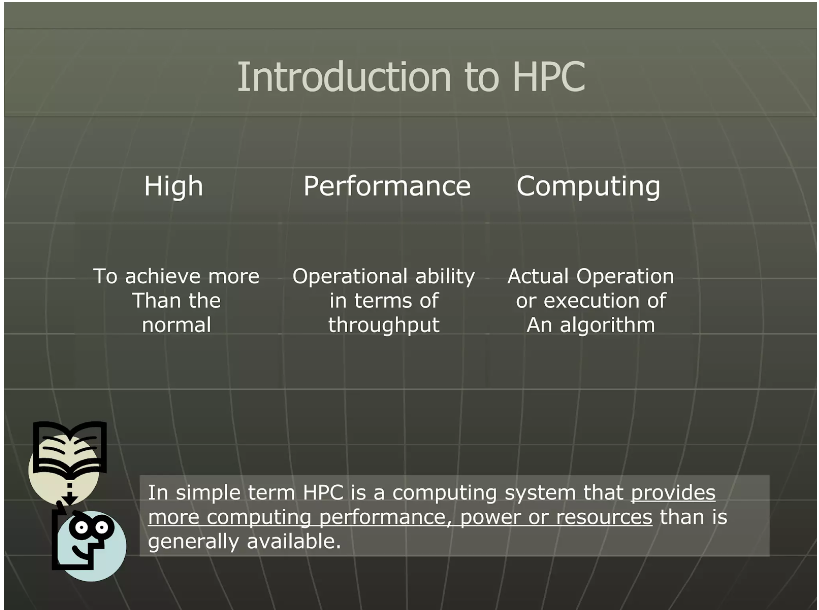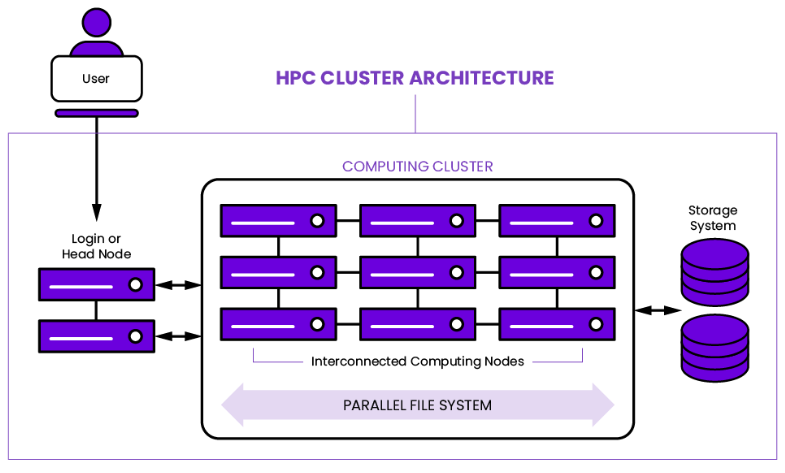HIGH PERFORMANCE COMPUTING:UNLEASHING THE POWER OF SUPERCOMPUTING
Research Team
- Resource center
- Published:
- Resource center
- Published:
In the world of computing, where speed and efficiency are paramount, High-Performance Computing (HPC) stands as a titan among its peers. HPC refers to the use of supercomputers and clusters of computers to perform complex and demanding computational tasks at speeds that were once considered unattainable. This blog will delve into the fascinating realm of high-performance computing, exploring its significance, architecture, applications, and the cutting-edge advancements driving its evolution.
Introduction to High Performance Computing

High-performance computing is all about pushing the boundaries of what computers can achieve. It enables scientists, researchers, and engineers to tackle problems of immense complexity and scale, from simulating the behavior of subatomic particles to predicting weather patterns on a global scale.
HPC Architecture
The architecture of an HPC system is vastly different from the average desktop or server. It’s designed for maximum computational power and efficiency. Here’s a simplified diagram of an HPC cluster:

- Compute Nodes: These are the workhorses of the cluster, each equipped with powerful processors and memory.
- Interconnect: A high-speed network connects all the nodes, facilitating rapid data exchange and parallel processing.
- Storage: HPC systems require massive storage capacity to handle large datasets. High-speed parallel file systems are common.
- Scheduler: A scheduler manages job allocation and ensures efficient utilization of resources.
Applications of HPC
HPC has far-reaching applications across various domains:
1. Scientific Research
HPC is instrumental in simulating physical phenomena, aiding in drug discovery, modeling climate change, and understanding fundamental aspects of the universe.
2. Engineering
Engineers use HPC for complex simulations and optimizations, designing everything from aircraft to energy-efficient buildings.
3. Financial Modeling
In the world of finance, HPC enables rapid risk assessment, algorithmic trading, and predictive analytics.
4. Weather Forecasting
Meteorologists rely on HPC to create accurate weather forecasts, vital for disaster preparedness.
Advancements in HPC
HPC continually evolves to keep pace with the demands of modern computing. Some noteworthy advancements include:
GPU Acceleration: Graphics Processing Units (GPUs) have revolutionized HPC by providing massive parallel processing capabilities.
Quantum Computing: Emerging quantum computing technologies promise to revolutionize HPC with exponential speedup for specific problems.
Exascale Computing: HPC is reaching exascale levels, with systems capable of performing a quintillion calculations per second.
In conclusion, high-performance computing is not merely a field of computing but a powerhouse of innovation and discovery. Its continuous advancements promise to push the boundaries of what’s possible in science, engineering, finance, and beyond, ensuring that HPC remains at the forefront of technological progress.
By embracing the power of HPC, we open doors to new realms of knowledge and achievement, driving humanity forward into an era of unprecedented computational capability.
Read more at
To explore further, check out these reputable sources:
Dongarra, J. et al. (2017). The international exascale software project roadmap.
Luszczek, P. et al. (2019). The HPCG benchmark suite.
Gropp, W. et al. (2016). Using Advanced MPI: Modern Features of the Message-Passing Interface.
NVIDIA (2021). NVIDIA GPUs in High-Performance Computing.


